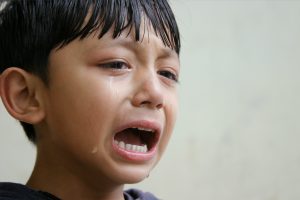Children’s emotional well being
Supporting children’s emotional well being is highly important, if not supported it can cause problems later on in life. Emotional development is now recognised as one of the main areas in the Early Years Foundation Stage, therefore this is why practitioners working in early years settings needs to be aware of ways to support children in this area of development.
Having a clear explanation of what is emotional well-being in young children can help practitioners identify how they can support children. Emotional well being is linked very closely to children being able to communicate and interact with others in a positive way. Children will often get frustrated and not being able to deal with these frustrations can have effects on children’s emotional well being, therefore giving children the adequate support will enable them to deal with their emotions and frustrations appropriately. There will be plenty of times where children will turn to adults for help in managing negative feelings, helping children to deal with these will help them to deal with their feeling later on in life.
Why is it important to support children when they are young?
Supporting children with their emotional well being will lead to children having a positive impact on their social interactions with other and the ability to make friendships. If left unsupported children may display behavioural difficulties which may lead to further issues later on in the future. People working in the early years have the crucial job of supporting children emotional well being from a young age, this opportunity can only happen once, therefore having more awareness of emotional well being can only be more beneficial for children and families.
What are the signs of poor emotional well being?
Children at some point in their development with go through a stage of acting out their feelings and behaviour whilst displaying negative emotions, this is quite normal for young children as they don’t know how to deal with this feelings appropriately. However if children repeatedly display these ways of how they are feel they could be demonstrating difficulties with their emotional health. Children who struggle with their emotional health may shows signs of a very short attention span and behaviour such as being withdrawn or aggression towards all peers. Children may find it difficult to socially interact and communicate with peer groups and for these children their only way of communicating is through displaying signs of anger or frustration.
What can practitioners in early years do to help?
Observing children is key and being able to identify children’s behaviours and the emotion linked to this behaviour is a great starting point to being able to support these children. Showing children that you understand their emotions and behaviours means you can help them find ways of demonstrating how they feel.
4 steps to help you dealing with a child’ emotions
- Adult recognises the emotion.
- Adult names the emotion for the child.
- Adult provides some comfort.
- Adult offers a solution.
These steps are great to introduce and you may already being doing them. It will show to the child that their emotion is valid and you understand them and there is a solution. Over a period of time children will gradually be able to deal with their emotions themselves.
Whilst observing children in your care and you are concerned over their emotional health, always speak to parents as there may be reasons why such as moving home, new baby, parents separating etc, therefore always communicate openly with parents and never jump to conclusions
